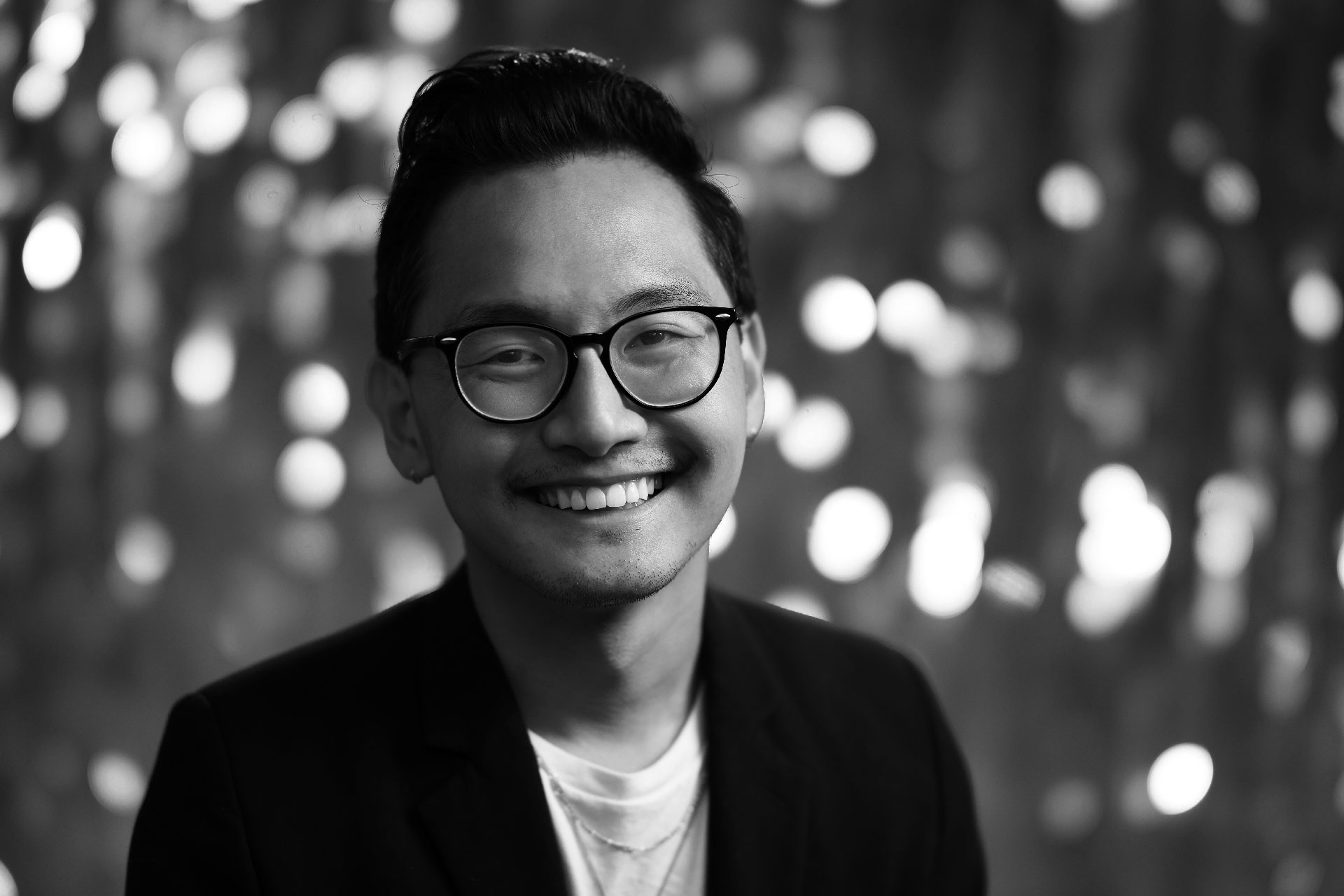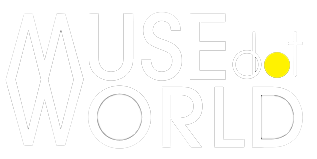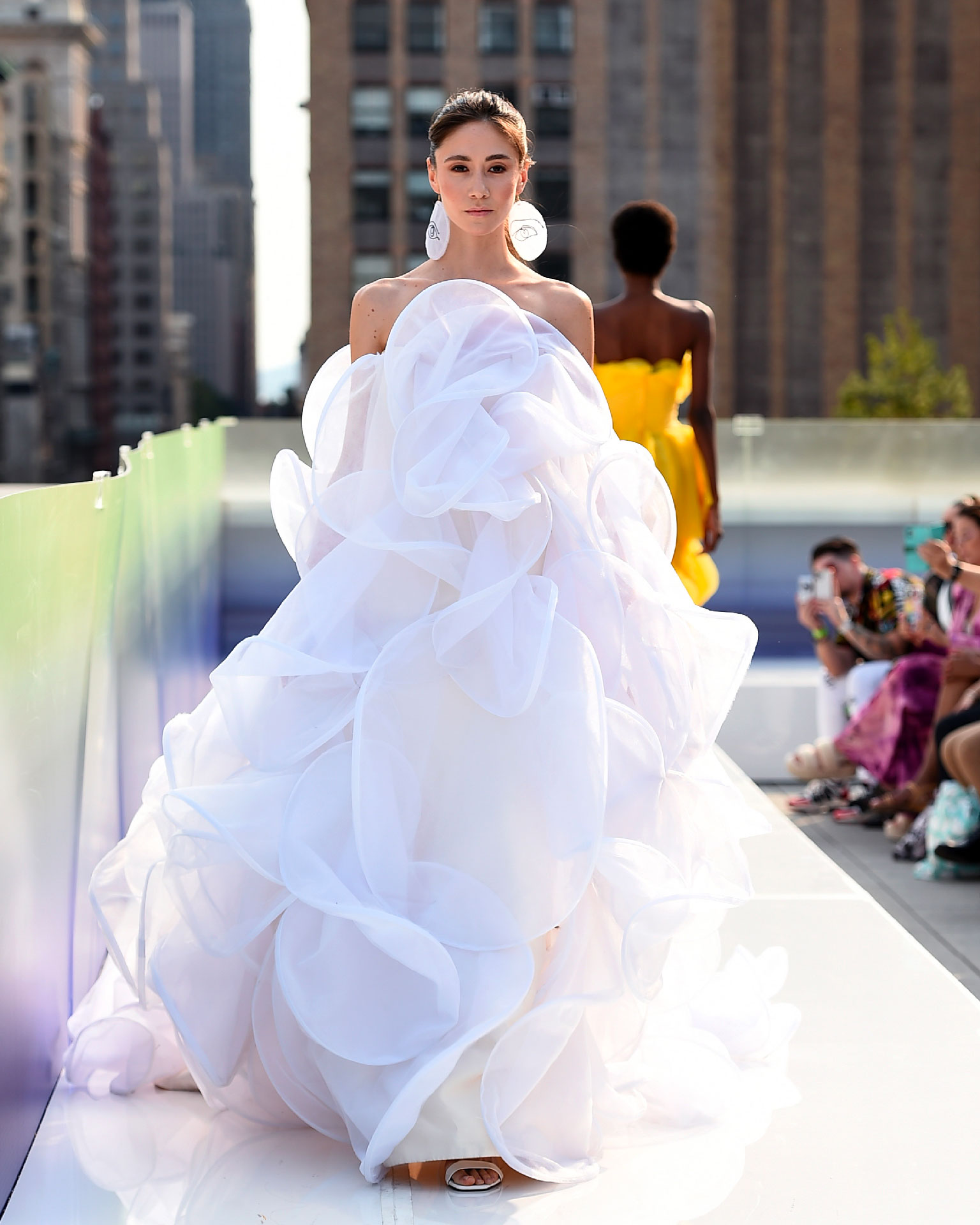Interview with Kyle Denman from United States

Interview With Jesica Yap from United States
May 17, 2022
Watch Yeo Jin-goo Eat An Imaginary Pizza In This Neo Pizza Ad!
May 17, 2022Kyle Denman
Los Angeles-based Kyle Denman is a designer with a passion for fashion and has recently showcased his works at the 2021 New York Fashion Week. Find out his thought process in creating fashion!

Kyle Denman | MUSE Design Awards
Interview with the 2022 MUSE Design Awards Winner - Kyle Denman
As a designer, my mission is to use my own platform and privilege to create social change, share cultural narratives, and humanize the experiences of underserved communities through artistic mediums.
I am currently based in Los Angeles, California. Before entering the fashion industry, I studied political science. Having always loved art growing up, I craved creative expression and freedom and moved to Los Angeles to pursue fashion design. Currently, I teach fashion design and art to at-promise youth. Many of my students are systems-impacted and have experienced trauma, such as trafficking, unhousing, gang violence, domestic violence, and substance abuse. Through the lenses of fashion, art, and design, I teach these youth social-emotional skills—a former student explained that my programming even saved her life and taught her how to love herself.
Premiering at NYFW and winning the 2021 International Design Award for Fashion Design of the Year, my collection, "mul·ti·po·lar—ex·ist·ence," was inspired by the interconnectivity and the multidimensionality of the human experience. The collection demonstrates the capacity of the human condition and how we as people are interdependent elements whose souls become intertwined through chance and circumstance. It is a conceptual, personal, and poetic vision of humanity; it is both an homage and a criticism of the dissociation and derealization of relationships in our own lives. “mul·ti·po·lar—ex·ist·ence” can best be summarized in just six words: soulmates will always find a way.
Some of my other accolades include:
- 2021 International Design Awards Fashion Design of the Year
- 2021 30 Under 30 Changemaker in Education
- 2018 Young Fashion Designer of the Year
- 2016 Project Runway Remake It Work Grand Prize Winner
I have always loved art. My parents have told me that I could draw before I could talk. However, I have also loved politics and law. When I was in high school, I was the Youth Mayor of Cincinnati, Ohio and attended national conferences on policy. When I was completing my undergraduate degree in Political Science, I was working with the Scripps Gerontology Center and was supporting them with research on the effectiveness of art on people who have dementia, Alzheimer’s, and other neurocognitive disorders. Here, I truly began to understand the impact of art and creativity in people’s lives. I decided to pursue fashion design, as I saw it as an expression of art in everyone’s lives every day. I guess my passion for art never left me!
I am extremely grateful to have worked with some incredible celebrity clients for different events, performances, and red carpets. I have also been fortunate to have presented my work in different fashion shows and Fashion Weeks. However, the best part of my job is teaching fashion design to some incredible students! They inspire me every day and certainly make me laugh! I consider some of them my close friends.
I believe fashion is an all-encompassing art that is movement, innovation, and architecture juxtaposed in political, social, and cultural contexts.
From my experiences, I have learned that fashion design is one of the simplest yet most complex ways in which people communicate with the world and themselves. In order for the fashion design industry to truly thrive, there needs to be an understanding of how people affect and are affected by the field, from start to finish and from design conception to the last wear of a garment. In a way, the fashion industry itself is a form of globalized team collaboration and social supply chain.
I am deeply inspired by the late couturier Cristobal Balenciaga, Dutch designer Iris van Herpen, and Japanese designer Issey Miyake. All three designers have really pushed the envelope when it comes to design. All three have experimented with architecture and silhouette, which is arguably the aspect of fashion design that I enjoy the most. They are also each incredibly avant-garde in their design philosophies and evoke such strong emotions through their work. The first time I saw work by any of these three in-person, I think I was left speechless.
I think a “good” design is design that has intention behind it, whether it be in the storyline that is told as it’s shown on the runway or even with the creative process behind it—sustainable fashion, for instance, is good design because there is a social consciousness woven into the creative process itself.
As a designer, I am known for my avant-garde creations, unique silhouettes and construction techniques, and emotional storytelling. Sometimes, my work is labeled “weird” or “controversial.” But what art isn’t controversial at some point? And I’m definitely not afraid to make waves.
If I am working with a client, I want to ensure that I listen to their voice. I do my best to set my ego and personal needs aside and just provide feedback based on my own skills and experiences. For instance, it’s important to communicate with a client that all fabrics have to be treated differently from one another and each type of fabric will not work for all silhouettes or designs.
If I am working on a runway collection or a personal project, I begin my creative process with a question. I ask myself, “What story do I want to tell?” Once I have that answered, I begin my research. I find quotes and images relating to my chosen story, research historical events and literature if applicable, and place my findings in an inspiration journal. Then, I will start finding fabric swatches, begin sketching, and drape silhouettes.
In my process, I also write a short essay about the theme and intention of my collection. This allows me to refer back to what I wrote as I get deeper into the creative process and ensure that each look in the collection remains relevant and coherent with the overall theme.
I do. I am adopted from South Korea and grew up in Ohio in the United States. I think my whole upbringing has had an influence on my design process. What artist or designer isn’t influenced by the ways in which they grew up?
Creating my winning entry and collection, “mul·ti·po·lar—ex·ist·ence,” was deeply emotional and personal for me. I had worked on this project for over a year before it was showcased on an international stage. Winning the 2022 MUSE Design Awards for this collection was special and humbling. To receive such a prestigious award alongside well-known and established companies was incredibly validating. When I first found out that I received this award, I could not believe it! I am proud but am also so thankful for the award and the experience.
Premiering at New York Fashion Week, “mul·ti·po·lar—ex·ist·ence” was inspired by the interconnectivity and the multidimensionality of the human experience. I personally think some of the strengths of “mul·ti·po·lar—ex·ist·ence” are the unique silhouettes (featuring profile-views of faces in most of the looks), the creative construction techniques, and the emotional significance. I believe my work is relatable to most people, as “mul·ti·po·lar—ex·ist·ence” can best be summarized in just six words: soulmates will always find a way.
I entered this collection into the MUSE Design Awards because I wanted to uplift the story that was being told and share it with an even wider audience. This collection has meant a lot to me, and I wanted to share it with others.
The biggest challenge with this project was not doubting myself in the process! In the past, I have often lacked a lot of confidence in my work. Believing in myself and the work that I create was the biggest challenge. Sometimes, you have to just get out of your own head!
Winning a MUSE Design Award has definitely given me the confidence to keep working. It’s such a huge honor, and I know it will really propel my practice and career because now I know that others believe in my work and I should, too.
My three favorite things about the fashion design industry are:
the creativity and inspired work from designers and artists;
the collaboration and teamwork among designers, patternmakers, merchandisers, and others (it’s a real team effort, and I love to see it!);
and how wonderful the people can be—I’ve been fortunate to have been surrounded by talented, kind, and really inspiring people in the fashion design industry.
I think the United States is unique in the design industry because there is SO MUCH of it! From a business perspective, there are so many consumers who lead incredibly different lives and who live in incredibly different climates and social settings. From a design and art perspective, there are SO many talented designers! I also think so many designers bring elements from their families’ countries and cultures. It’s really neat to see the juxtaposition of fashion, business, politics, and culture.
Fashion design has evolved substantially over the past few years. There is more social and cultural awareness and a stronger emphasis on sustainability. I think this sensitivity and eco-consciousness are driving positive change in the fashion community. The fashion industry, like most industries, is globalized and built on both a resource supply chain but also a social supply chain.
Just go for it! A person can’t win if they don’t enter a submission! And a new designer can't be successful without starting!
A person does not need to spend tons of money to get started! YouTube and other websites that are easily accessible to anyone and are user-friendly and extremely important! If someone wants to hone their sewing skills, I would recommend that they find an inexpensive sewing machine and practice sewing straight lines until they’re absolutely sick of it! Just keep practicing and doing your best!
Also, use your network as a resource! Reach out to those designers that inspire you and ask for advice or support!
I am very open with my best friends, so I can't think of anything I haven't told anybody yet. ... Wait ... nope also told that story already.
My family, friends, and students inspire me. They constantly push themselves to be better versions of themselves, and it’s really inspiring for me to see. I hope to challenge myself to be the best version of myself every day..
Believe in yourself!
I have almost always received the same criticism for my work—my clothes are “too weird” or are not marketable. Sometimes people have told me they “don’t get” my work. Before presenting “mul·ti·po·lar—ex·ist·ence” at New York Fashion Week, I shared some of the designs with some mentors and friends. At first, some of the criticism was the same that I have always heard. It was disheartening, to say the least, to hear negative feedback about such a personal project.
However, I really tried to think objectively about my work. It is always important to listen to others regarding my work so I know how to improve. After some editing, one of the most controversial looks in my collection became one of my favorites and one of the most praised! I had to remind myself that it was my goal to create walking and wearable art, and I don’t know if I would have been able to fully achieve my goal if it wasn’t for that negative criticism.
I only have one: Sebastian Moock, my best friend and an amazing typographer and graphic designer. Any of his projects could be submitted here.
Winning Entries
mul·ti·po·lar—ex·ist·ence | 2022
Premiering at New York Fashion Week in September 2021, "mul·ti·po·lar—ex·ist·ence" was inspired by the interconnectivity and the multidimensionality of the human experience. The collection demonstrates the capacity of the human condition and how we as people are interdependent elements whose souls become intertwined through chance and circumstance. It is a conceptual, personal, and poetic vision of humanity; it is both…
(read more at MUSE Design Awards)
Kyle Denman
Los Angeles-based Kyle Denman is a designer with a passion for fashion and has recently showcased his works at the 2021 New York Fashion Week. Find out his thought process in creating fashion!
Elevate your fashion by blinging out your wrist with a wrist watch by Louis Moinet. Starting with their FIRE Dragon watch!

